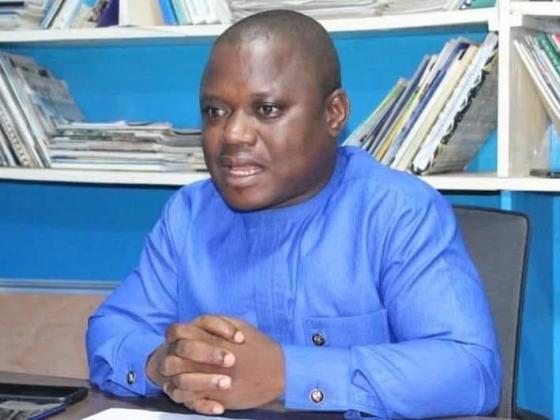Liberia: “Boakai Must Lead by Example”

CENTAL Executive Director Miamen
— CENTAL urges Liberian President to declare assets, audit consolidated account
The Center for Transparency and Accountability in Liberia (CENTAL) has called on President Joseph Nyuma Boakai to lead by example through asset declaration and audits, along with the implementation of anti-corruption measures. The anti-corruption watchdog also emphasized the urgent need for significant action to combat corruption in Liberia and improve the country's standing in global transparency rankings.
In addition to declaring his assets, CENTAL said that President Boakai should also muster the courage to audit the government’s consolidated account so that everyone knows what the past administration left in the coffers.
In a set of recommendations proffered to the Boakai administration, CENTAL noted that the new administration should lead in a way that is transparent and that focuses on the wellbeing of the Liberian people. The watchdog’s recommendations were keenly focused on combating corruption within the Liberian government.
In response to Transparency International's Corruption Perception Index (CPI) 2023, CENTAL's Executive Director, Anderson D. Miamen, stressed the importance of anti-corruption reforms in improving Liberia's performance on the CPI.
Miamen emphasized that President Boakai should demonstrate true leadership in the fight against corruption by appointing individuals with clean and untainted records, adding that it is also crucial for the president to declare and publish his assets, income, and liabilities while expecting the same level of transparency from his officials.
Additionally, CENTAL called on the General Auditing Commission (GAC) to conduct timely audits of the inauguration budget, expenditures, and the government's consolidated account. This is particularly significant amidst allegations of corruption and misrepresentation of facts surrounding the closing balance of the previous Coalition for Democratic Change-led government as of January 22, 2024.
CENTAL acknowledged the commitment from legislators to declare their assets, incomes, and liabilities. The group urged lawmakers to fulfill this commitment promptly, subject themselves to audits, and ensure transparency in their voting and other processes, building trust and accountability.
“We note the welcoming commitment from legislators to declare their assets, incomes, and liabilities. We encourage them to timely do so, open themselves up for audit, as well as make their voting and other processes transparent,” Mr. Miamen added.
The organization further urged the Unity Party regime to investigate a longstanding passport scandal at the Ministry of Foreign Affairs, complete the investigation, and publish the findings. They also called for the investigation of other unresolved matters from the previous administration, with the subsequent publication and implementation of the findings.
Miamen concluded by encouraging civil society, media, ordinary citizens, and other actors to engage constructively and support national efforts against corruption. With collective efforts, Liberia can make significant progress in the fight against corruption and improve governance. However, CENTAL highlighted that Liberia's ranking in the CPI 2023 stands at 145 out of 180 countries.
The report indicated a decline of 7 points from 32 in 2018 to 25 in 2023, further solidifying Liberia's position as one of the largest decliners on the CPI. Since 2012, the country has dropped a significant 16 points, making it the only country in West Africa and the Mano River Union to experience a decline over the past six years.
CENTAL's 2021, 2022, and 2023 State of Corruption Reports reveal that 90% of Liberians perceive high levels of corruption in the country. There is also a low level of confidence among citizens concerning the executive branch's ability to combat corruption.
Miamen expressed concern over Liberia's consistently poor performance, particularly its position among the worst decliners globally. This, he noted, is indicative of the government's failure to address the deeply rooted culture of impunity for corruption, despite the enactment of new anti-corruption laws and amendments to strengthen existing ones.
For instance, current and former government officials sanctioned by the US Government for corruption have yet to be investigated and prosecuted. This highlights the weak enforcement of anti-corruption laws in addition to limited financial support for public integrity institutions like the Liberia Anti-Corruption Commission and Public Procurement and Concession Commission.
